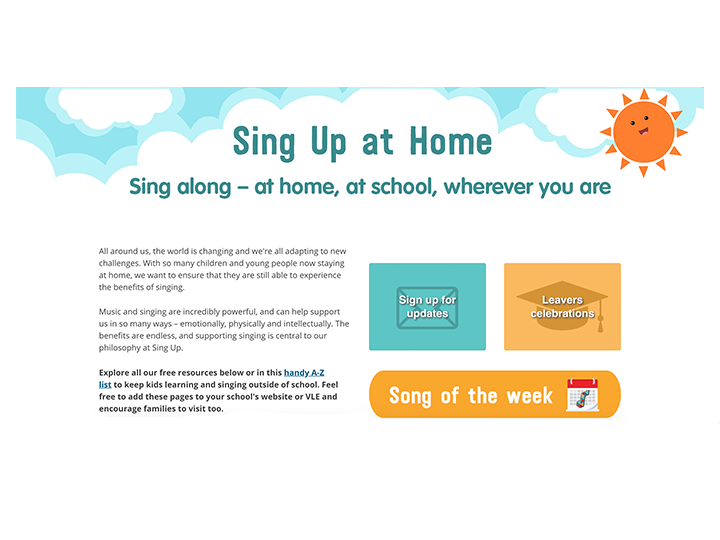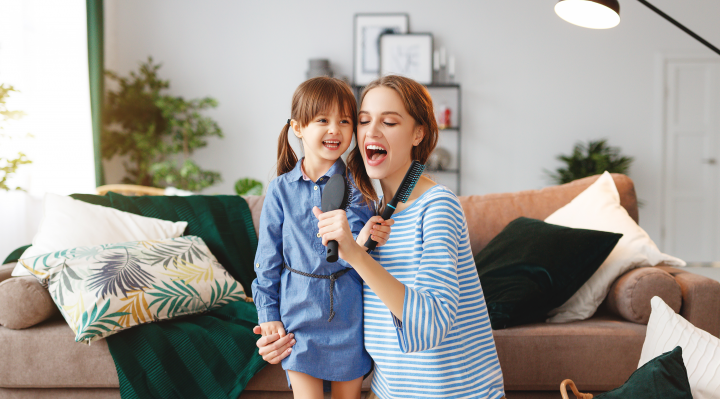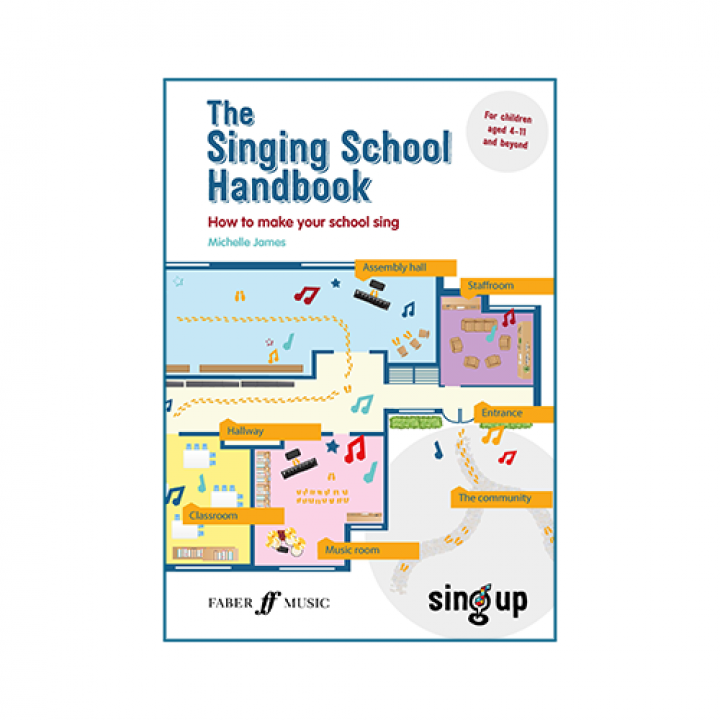
Tell us about yourself
I’m based between Yorkshire and Newcastle upon Tyne, and I’ve been a singer/songwriter for the past 20 years and a musical director for the past 10. Every day is different, which is one of the reasons I love my job so much.
Can you tell us about 'Beccy Owen's Pop-Up Choirs'?
This is an ongoing series of group singing events. We bring together people of all ages, backgrounds and musical tastes for a one-off experience. People often arrive feeling nervous and unsure about their voices and always leave feeling uplifted and confident.
To what extent has your experience as a musician informed your other work?
I am very much an ‘aural’ musician, led by my ears and my heart. My music theory is pretty poor, my brain doesn’t seem to be wired for it. For many years I had ‘imposter syndrome’ as a result of that, but over the years I’ve learned there are as many different types of musicians as there are types of music. So, my work is always striving to be inclusive of how different people approach music differently. I’m an ambassador for the idea that a little knowledge goes a long way, and that there’s always something new to learn when it comes to music and musicianship - no matter who you are.
Who are some of your biggest songwriting inspirations?
Lyrically I take a lot of inspiration from writers who are storytellers and can use very specific images or ideas that somehow feel universal in their specificity. I love lyrics that can stand up on their own, almost like poems. So, people like Joni Mitchell, PJ Harvey, Thom Yorke, and Tom Waits. I also have a lot of time for R&B hip hop artists like Kendrick Lamar and Janelle Monáe. Musically, I love pop music that’s expansive and generous, and I’m inspired by anyone who writes, performs and produces their own material, so Björk is one of my musical heroes.
Can you tell us a little about your writing process? What comes first and how do you develop ideas?
Usually a lyrical idea or sound will begin the process. I carry a notebook everywhere that’s brimming with potential ideas and starting points. I collect language. Then I set aside time in my day where I won’t be disturbed to explore these scribbled ideas. I may only have one word, or line to go on, or even the sense of a sound, but it’s enough. I sit at my piano, press record and spend some time ‘noodling around’. If something I like comes out, I repeat it until it sticks. If I can’t remember what it was, I have the recording as a back-up. Listening back also gives me a good amount of distance to be able to flip into ‘editor’ mode. Often, I will improvise both melody and words, with the question ‘what am I trying to communicate?’
Melody seems to come quite naturally, but if I’m totally stuck I’ll listen to a song by someone else for inspiration. Often something from the classical canon.
I’ve found that if a song I’m writing doesn’t get finished within that songwriting session - even if I’m not settled on all the details - then it doesn’t happen at all. I don’t like the feeling of a ‘backlog’ or unfinished business, so I will happily abandon ideas that don’t stick. It all needs to feel like play to me, rather than a chore. I don’t believe we should have to suffer to our art.
What’s your favourite thing about writing music for younger voices?
There’s something wonderfully liberating about writing for younger voices. For a start, I love the group sound that young voices make - there’s a vitality to it that is unmatched and really exciting. I also love to write with a sense of humour and immediacy, knowing that the group I’m writing for will thrive on both.
How did you find writing the Sing Up Day 2019 song One moment, one people? What was the inspiration behind it?
I loved writing this song. The challenge of writing a song that is essentially about singing together without talking too much about singing itself was really interesting. I started by writing down all the words I could think of that I associate with singing that aren’t musical. Then I decided the song was going to flip from a first-person perspective to a collective ‘us’ perspective, to show how singing unifies us.
I tried to channel all the times that music and singing with others has made me feel happier and healthier or made me feel like there is somewhere I can find a sense of belonging. Even though I was writing to a set brief, this song came from a very real and personal place.
Was there anything you focused on to ensure that it was catchy and accessible for all ages?
Yes! Less is more, so keeping things clear and simple was very important. Also, dancing. If I found that I could dance along with the music and singalong easily with the tunes and lyrics, then I went with it. If my body wanted to move to it then my voice wanted to sing it, and I hope that logic means that the same will be true for others!
Do you have any advice for young aspiring composers?
Writing music is a combination of the head and the heart, the conscious and the unconscious mind working together with both our inner ‘child’ and our inner ‘editor’. Each individual has a unique perspective on the world and our own story to tell. Keeping that thought in mind can be very motivating, particularly in times when we have self-doubt.
If you’re songwriting, don’t worry about whether your lyrics are any good or not to begin with. Your job is to make a start and keep going, not to change the world. Everything can be adapted, improved, changed, etc. later on. Value even the ‘mistakes’. Play.
If you are a writer who doesn’t play an instrument, don’t worry. We are each of us a walking jukebox - with hundreds of other people’s songs already stored in our heads. If you love music and you listen to songs, then you will already have been developing ‘songwriting sensibilities’, perhaps without realising it, and so you will already have a sense of structure, i.e. how a song might begin, progress and end.
There are plenty of online resources and useful tools for creating tracks to write to or accompany your existing melody and lyrics. Like Karaoke tracks, Band-in-a-Box, or online music creation web sites. Even if you’re already an instrumentalist, it’s fun to use some of these songwriting tools to break out of old habits and get inspired.
If you are interested in learning an instrument, I’d recommend you start with chords.
If you learn the basic six “songwriter chords” on piano or guitar – C, Dm, Em, F, G, Am – you can instantly play many modern pop songs on guitar or keyboard.
Crucially, challenge yourself to finish what you start, even if it’s hard or uncomfortable to keep going. Many people start songs and don’t finish them. In terms of building confidence, I think it’s better to finish one song that you’re maybe not totally happy with than to leave a bunch of unfinished songs lying around.
No creative task is ever a waste of time, because one way or another you’re exercising your ‘creativity muscles’ and learning to trust yourself and explore what interests you. Trust your instincts, follow your own curiosity, study other people’s songs and work out what you like about them or why they feel true to you.
Where can we find more of your music?



